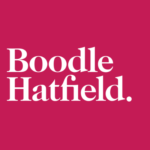This category can only be viewed by members.
Helen Ratcliffe analyses the UK/Swiss tax agreement and the implications for trusts ‘The agreement provides for enhanced exchange of information between the tax authorities of the two countries, beyond that already provided by the existing double taxation agreement.’ Many UK-resident individuals will have family money in Swiss bank accounts that may have been there for …
Continue reading "Switzerland: Off-piste pragmatism"
This post is only available to members.
Austin v Woodward clarifies the limits of ‘clerical error’ as a ground for rectification, as Michael O’Sullivan explains ‘Many cases of rectification are effectively uncontested because the solicitor draftsman and their insurers have an interest in the application succeeding.’ The case of Austin v Woodward & anor [2011] concerned an application for rectification of a …
Continue reading "Will Drafting: Proceed with caution"
This post is only available to members.
In his concluding article Sukhninder Panesar examines the impact of Sinclair Investments Holdings SA v Versailles Trade Finance Ltd & ors ‘Despite the decision of the Privy Council in Reid, there was a considerable body of academic opinion that suggested that a claimant’s right to trace property in equity depended not only on the finding …
Continue reading "Equitable Tracing: A change in English law"
This post is only available to members.
Amin v Amin is an interesting application of the test in Stack v Dowden, as Sofie Hoffman discusses ‘This article considers only a discrete part of the judgment relating to the determination of the beneficial interests in Kingswood Manor, particularly given the complex family relations, both business and domestic, which were governed by a mixture …
Continue reading "Constructive Trusts: House rules"
This post is only available to members.
In the first of two articles, Sukhninder Panesar discusses different approaches to equitable tracing in light of the Court of Appeal decision in Sinclair ‘Until the decision of the Privy Council in AG for Hong Kong v Reid [1994], English law had argued that the right to assert equitable ownership over unauthorised gains in the …
Continue reading "Equitable Tracing: Proprietary base needed?"
This post is only available to members.
Judith Morris compares the approach of the Jersey court in Re BB, A and C with that of the English court in Jasmine Trustees Ltd v Wells Hind ‘Persons who have not been properly appointed as trustees, if they have acted in good faith, believing themselves to be duly appointed, are entitled to indemnity in …
Continue reading "Trustees: When is a trustee not a trustee?"
This post is only available to members.
Tim Fullerlove gives trusts and estates practitioners an update on the remittance basis for non-doms ‘Section 809I ITA 2007 includes a rather arbitrary but potentially very expensive trap. It states that if a taxpayer nominates a source of income or gains and remits anything from that source before they have remitted all other income and …
Continue reading "Tax Planning: Avoiding the pitfalls"
This post is only available to members.
Geoffrey Shindler looks ahead to divine what regulators might have in store for wills and estate administration ‘Core elements that seem to be involved in regulating will writing are: education of the will writer, responsibility of the office holder within the firm, conduct rules (particularly conflicts of interest), CPD, monitoring compliance with the rules, redress …
Continue reading "Musings From Manchester: New Year’s regulations"
This post is only available to members.
George Hodgson sets out the current position of FATF on trusts ‘It is worth saying at the outset that STEP is unaware of any evidence that points to trusts representing a major problem with respect to money laundering. Indeed, a recent report on worldwide trends in corruption by the World Bank found the evidence “suggests …
Continue reading "Regulating Trusts: Regulating trusts"
This post is only available to members.
Chris Walton explains why a review of online assets is an essential part of the will-making process ‘Many individuals overlook their digital assets and online profiles when making wills, perhaps because they are not so tangible as property or finance.’ Just ten years ago, the way in which we used the internet was very different. …
Continue reading "Wills: Virtual presence"
This post is only available to members.







